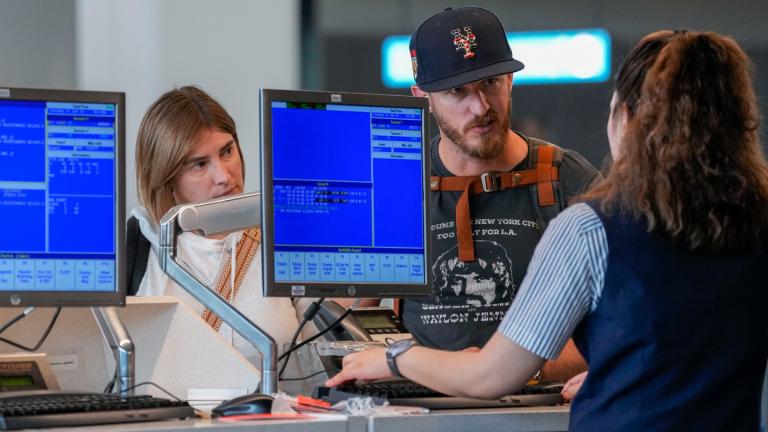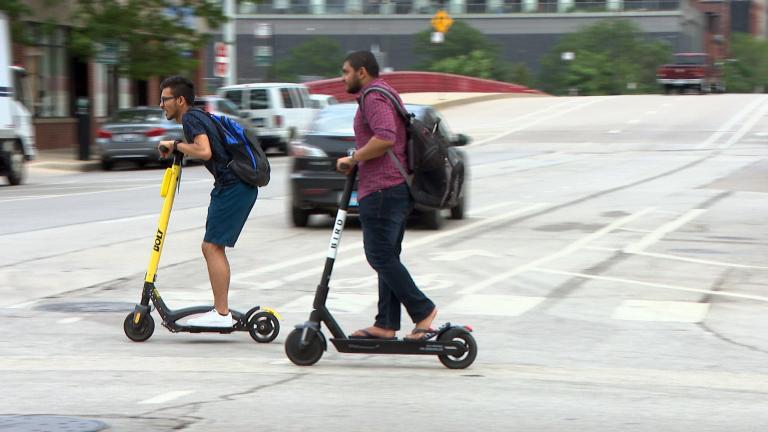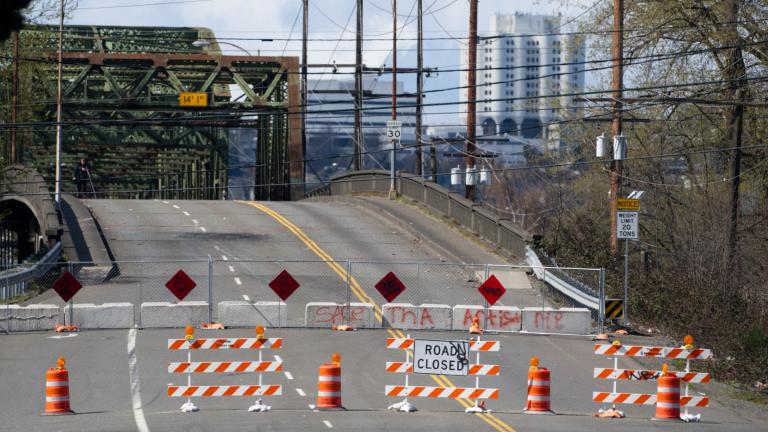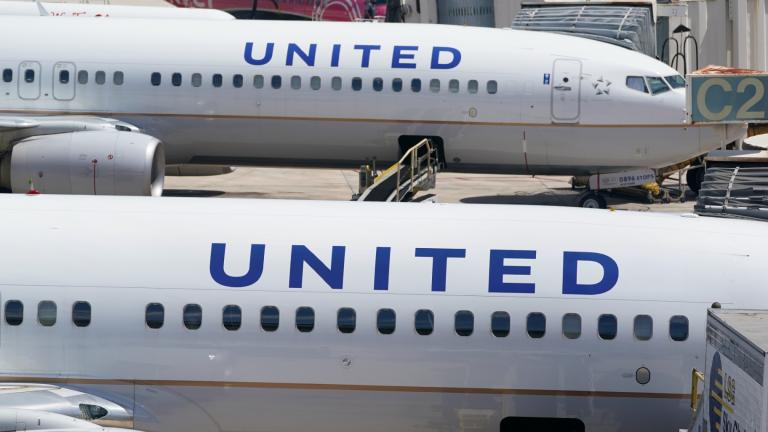 A southbound Metra Electric District train departs 79th Street station. (vxla / Flickr)
A southbound Metra Electric District train departs 79th Street station. (vxla / Flickr)
When Michele Lee lived in Glenview, it took her an hour and a half to get to her job at the Aon Center using public transportation – and that was on a good day. Her commute involved taking two buses and a Metra train.
And if she missed one leg of that trip, “it would be a nightmare,” said Lee, who began using a power chair in 2003 after a car accident left her paralyzed from the waist down.
But even getting to her bus stop in Glenview presented a challenge because there was no sidewalk. That means during winter “there was no way to get downtown,” she said.
Lee’s story is not unique, according to a new report by the Metropolitan Planning Council that outlines the challenges people with disabilities and the elderly face using Chicago-area transportation systems.
The report, “Toward Universal Mobility: Charting a Path to Improve Transportation Accessibility,” is the result of a two-year study in northeastern Illinois that included interviews, focus groups and meetings with nearly 100 people.
“As someone who developed a visual disability my 30s, I have become reliant on public transit myself,” said MarySue Barrett, president of the Metropolitan Planning Council. “I understand the frustrations people face when trying to navigate a system that is not designed to accommodate their unique needs.”
In reviewing the accessibility of transportation systems, the study authors found a fragmented patchwork of systems operated by different agencies with different hours of operation, eligibility, policies and fares. “It’s intimidating to navigate,” said Barrett. “(Transportation) should be seamless.”
The report also found that accessibility varied from place to place. “People have told us they can’t leave their neighborhoods – they live in an accessible neighborhood but they’re limited in where they can go in other (neighborhoods) that are less accessible,” said Audrey Wennink, director of transportation at the Metropolitan Planning Council. “Predictability was another transportation challenge. … People are nervous that if one thing goes wrong, they’ll have a disaster on their hands.”
Transportation challenges prompted Lee to move to the West Loop about 10 years ago. She now takes just one bus to work, but still encounters obstacles. Crowded rush hour buses don’t always make room to accommodate her.
A lack of accessible, reliable public transportation options and ride-hailing services that accommodate wheelchairs limits Lee’s ability to be spontaneous. “Getting a drink with friends or a rescheduled doctor’s appointment, that can be hard to manage,” she said.
The report makes 32 recommendations for improvement, including the establishment of a regional mobility coordinator to break down silos between transportation agencies and create a more unified system. Wennink envisions the coordinator taking a “30,000-foot view” of the region’s systems while being guided by riders’ needs. “We need to do a better job about thinking about transportation from a user’s perspective,” she said.
Other recommendations include providing consistent demand-response services in counties, incorporating real-time accessibility information into trip-planning tools, and increasing audible cues at intersections.
The goal is to move toward universal mobility, meaning that everyone can access transportation options that will get them where they need to go. “Access benefits everyone,” said Access Living Housing and Transportation analyst Adam Ballard, who contributed to the report.
Barrett echoed Ballard’s sentiment. “Improvements for people with disabilities and the elderly will benefit everybody,” she said. “Everybody will be affected by a disability at some point in their life, whether through aging, as a caregiver or even temporarily (as a result) of a surgery.”
Contact Kristen Thometz: @kristenthometz | (773) 509-5452 | [email protected]
Related stories:
Chicago Parking Fees Increasing, But City Set to Save Millions
Disability Rights Community Mourns Loss of Pioneer Marca Bristo
‘Shared Street’ Model in Uptown is Here to Stay. Will it Be Replicated?








